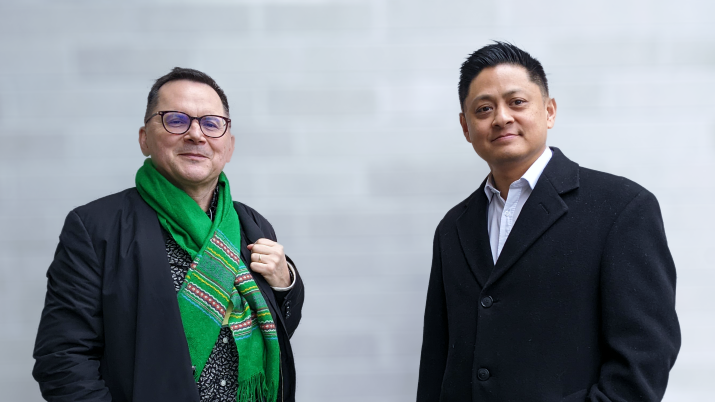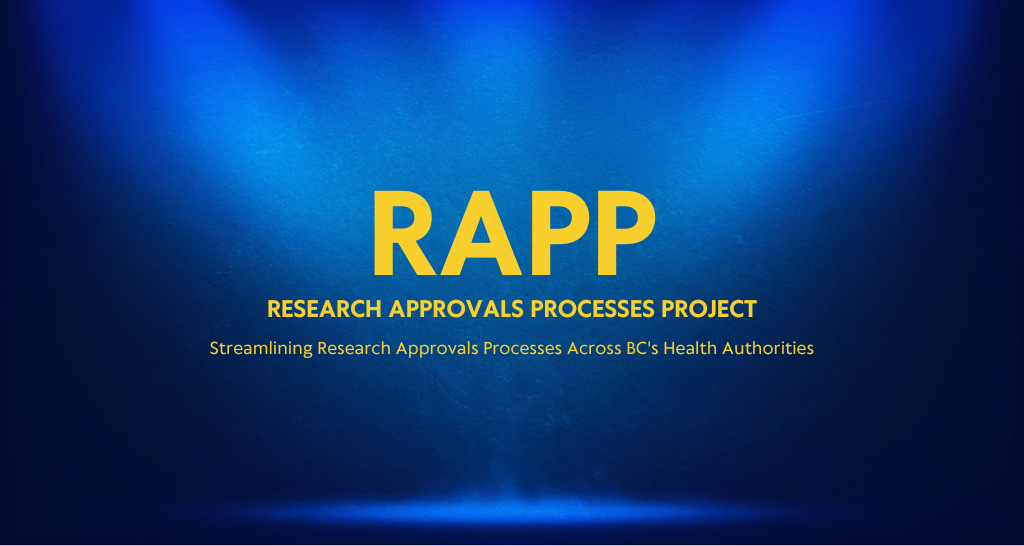COVID-19 research journeys: Outcomes and impacts one year later
15 June 2021
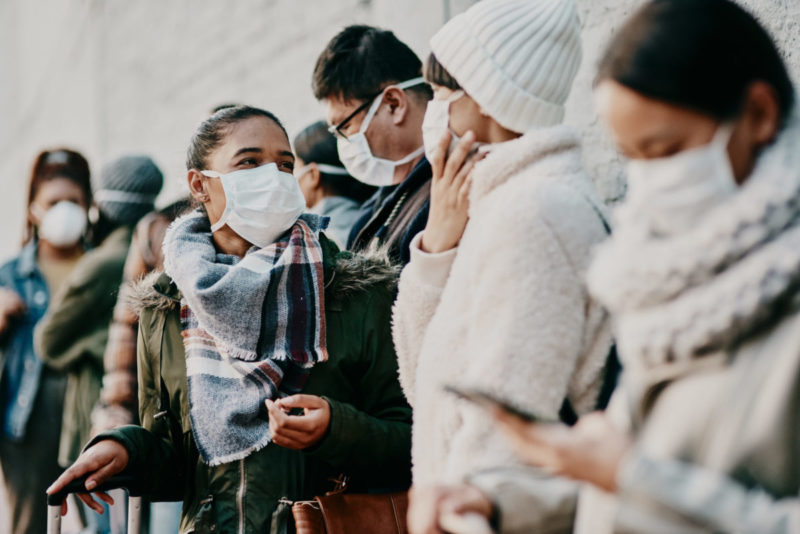
Recipients of the inaugural MSFHR COVID-19 Research Response Fund were announced one year ago and since then, the awardees have made significant impacts and evidence-informed contributions to BC’s COVID-19 pandemic response, from investigating the effects of the pandemic on vulnerable populations to long-term health effects and geographic inequities.
We caught up with five of the award recipients to gain insight on where their research programs are at, one year later:
Dr. Chris Carlsten: Solving the mystery of “long COVID” with patient partners
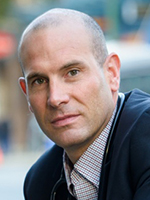
The reasons why some COVID-19 survivors continue to experience lung problems weeks or months after recovery continues to stump health professionals, but Dr. Chris Carlsten and his team is working to solve the mystery alongside patient partners.
With MSFHR funding, Carlsten’s team sought to find out what lung problems COVID-19 survivors experienced and the tests needed to mitigate lung health challenges and improve patients’ quality of life.
Carlsten’s team helped to establish post-COVID-19 respiratory medicine clinics at Vancouver General Hospital and St. Paul’s Hospital. They found that of 80 patients from the first wave of hospitalized COVID-19 patients, more than half of patients had lung and chest imaging abnormalities 12 weeks after their symptoms first appeared.
“We’re proud of acting very early on in the pandemic, establishing a research program that was truly patient-oriented and inclusive of patient views in the work we did,” says Carlsten.
Carlsten’s research team was able to actively follow the patient cohort for more than a year, and making their findings available to other researchers by publishing their results in major journals. Moving forward, the research team will capture two-year visits in spring 2022 to capture a longer-term picture of the disease — information no one else in BC is collecting to this extent.
Carlsten’s team worked with the BC SUPPORT Unit on the patient partner aspect of the research:
“Patients showed just how much they are willing to give back,” says Carlsten. “We all recognized together that this is a learning experience for everyone, including ourselves. Doing this work with patients makes it feel like we’re serving the community that we’re intending to serve.”
MSFHR support allowed Carlsten (also a 2011 Scholar award recipient) to leverage an additional $300,000 in funding and transition the clinic’s focus beyond the respiratory domain, as it’s become clear that long-term COVID-19 symptoms are not only respiratory. “The clinics that are moving forward are a legacy of what we did with the Michael Smith Foundation,” says Carlsten. “Without that seed, the long-term efforts may never have happened.”
Dr. Valorie Crooks: Mapping COVID-19 vulnerabilities in BC neighborhoods
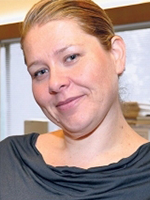
At the beginning of the pandemic, Dr. Valorie Crooks‘ research proposal was straightforward, but unique: communicate location-specific COVID-19 effects and vulnerabilities visually using maps. With her team, Crooks developed geospatial vulnerability maps that drew on information sources such as population and geolocation data to show which BC neighborhoods have higher risks of COVID-19 exposures, which communities might have challenges accessing ICU care for complex cases, and where people might experience health-related secondary impacts of the pandemic.
These maps supported public health messaging around the need for people to stay local to mitigate exposure risks and prevent further spread of the virus. The first model was released in late December at a critical point in the pandemic, with variants emerging and discussions around the arrival of vaccines.
“Our understanding of COVID-19 was incredibly different,” says Crooks, who is also a 2012 MSFHR Scholar award recipient. “Now it’s like looking back at a time capsule. What’s needed has changed so much.”
Crooks’ team started to envision a second model that considered long-term health impacts:
“We modelled the social impacts that we know have been brought about directly by the health measures,” Crooks explains. The second iteration of the maps was released in Spring 2021 and outlines how the COVID-19 long-term health impacts will be distributed across BC communities and takes into account housing and job security, burnout, loneliness and education disruption.
“This has become a public science project,” says Crooks. “We’ve had conversations with many government ministries and offices looking at data science and access, or community development. The maps are giving communities information they need around resourcing to address what’s going to be increases in depression and anxiety in certain areas.”
Dr. Naveed Janjua: Using data to inform BC’s reopening

Mathematical modelling has played an integral part in managing our pandemic response, informing decisions around tightening or loosening restrictions, and providing a guiding light for when life might return to normal. With MSFHR funding support, Dr. Naveed Janjua and his team developed various models that informed policy and decisions on BC’s COVID-19 response.
Since then, Janjua’s team launched a survey led by Dr. Prince Adu to understand and measure contact patterns in BC over time. These data have been used to monitor contact rate per person in British Columbia over the past several months. So far, about 60,000 British Columbians have participated in the survey. The data on contacts have also been used to develop and refine mathematical models estimating COVID-19 transmission.
The team’s work is informing more than just BC’s pandemic measures — they have collaborated with health experts in other provinces and are contributing to modelling work in Ontario.
In addition, Janjua’s team is conducting a study to assess the relationship between contact patterns and vaccine hesitancy, and to evaluate the impact of vaccine hesitancy on COVID-19 transmission in BC in order to inform health education campaigns.
“Survey data are critical as we are moving towards reopening, we have high vaccine coverage, and are also lifting restrictions,” says Janjua. “As we implement reopening measures, we need to monitor how contact patterns will differ across various population groups and if that is related to vaccine uptake.”
Going forward, Janjua’s team aims to make connections between vaccine acceptance rates and contact patterns among certain groups in order to predict where future outbreaks may occur.
Dr. Julian Somers: Supporting vulnerable citizens during COVID-19 through policy

People who experience homelessness, mental illness, addictions, and spend periods of time in custody and hospitals have been, and continue to be, uniquely impacted by COVID-19. Dr. Julian Somers’ team at Simon Fraser University’s Centre for Applied Research in Mental Health & Addiction (CARMHA) are supporting efforts to reduce the spread and impact of COVID-19 in these populations by providing evidence to inform policy recommendations among decision-makers.
With MSFHR funding, Somers’ team investigated the transmission of COVID-19 in highly vulnerable populations described in inter-ministerial reports addressing high-risk youth in custody, people experiencing mental health and substance use disorders, and people with mental illness who are held in BC custody.
Somers’ research team works alongside people with lived experiences integrating homelessness, mental illness & addictions, and recovery. Results from Somers’ research were featured at the BC Provincial Justice Summit in Fall 2020 and were picked up by mainstream media.
“The research further confirmed that risks are not evenly distributed in populations, and that risks relating to contracting COVID-19 complications are disproportionately high among those known to experience other risk factors, like drug poisonings or being victims of crime,” says Somers.
His team’s findings have been developed in close collaboration with a longstanding inter-ministerial steering committee and Somers’ team is also advising senior members of government.
Dr. Mari DeMarco: Predicting COVID-19 severity with a single drop of blood

In the early days of the COVID-19 pandemic, much was still unknown about the SARS-CoV-2 virus and the body’s response to it. Dr. Mari DeMarco’s team sought to create a blood test that uses only a drop of blood to provide insight on whether a person would get very sick or easily fight off the virus, allowing resources and support to be directed to those who need it most.
With MSFHR funding, DeMarco’s team set to work developing a novel “next generation” blood test, called immunIQ. This test enabled the team to provide detailed information regarding a person’s immune response to SARS-CV-2 infection or COVID-19 vaccination, beyond what is currently available.
Accelerating the project was the fact that DeMarco’s team could leverage her previous diagnostic work, including previously-funded MSFHR research.
“All the pieces were there, we just changed our disease focus,” explains DeMarco, who is also a 2016 MSFHR Scholar award recipient. Since then, DeMarco’s team has been applying the immunIQ test to everything from individual COVID-19 cases with unusual findings to large-scale clinical trials occurring across Canada and abroad.
DeMarco’s MSFHR funding also helped her team and collaborating labs secure an additional $500,000 in funding through the Canadian Foundation for Innovation. “It showed that we were actively funded in this area, which helped is be successful in getting the additional equipment we needed to scale up our testing,” says DeMarco.
Thinking ahead, DeMarco’s team set out to build with the immunIQ blood test something adaptable to future viruses.
“It’s something we were intrigued by,” says DeMarco, “We built a platform that isn’t locked into SARS-CoV-2. By swapping out one part and swapping in another, we can easily adapt this test for other pathogens, allowing us to respond even faster in the future.”
In addition to contributing to BC’s COVID-19 response, DeMarco’s MSFHR funding enabled the hiring of research trainees, who received firsthand research experience and had the opportunity to see how their skills can be used to make an impact.
Launched on April 6, 2020 and funded by the Province of BC, the MSFHR COVID-19 Research Response Fund supported urgent research needs important to British Columbia that have arisen as a result of the COVID-19 pandemic. This funding is just one part of a coordinated British Columbian health research approach involving assets that support health research as well as innovative, cross-disciplinary researchers and teams.
As BC’s health research funding agency, MSFHR is committed to enabling responsive, relevant research to support British Columbia’s efforts surrounding the pandemic and ensuring that the health research community has the resources it needs to continue doing world-class research during a time of rapid and inequitable change.



